The peculiarities of memory are such that the human brain doesn’t retain cinema as front-to-back narratives, but as indelible fragments: a shot, a scene, a costume, a song cue, or perhaps most frequently due to the simple pleasure of dropping a movie quote to someone who gets it, a single line of dialogue. Whether foregrounded in a trailer played ad nauseam or imprinted by an unforgettable viewing in the theater, speech sticks with us long after the memories of what actually happened in a film start to fade.
Here at Little White Lies HQ, our motley crew of contributors have spent the past year with snippets of script flapping around in their brains like so many bats in a dank cave. And so in an effort to free ourselves of whatever we might call the spoken equivalent of an earworm ditty, we’ve shared the stickiest line-readings of 2022, from the erotic come-ons we can’t unhear to the accent work we can’t quite parse.
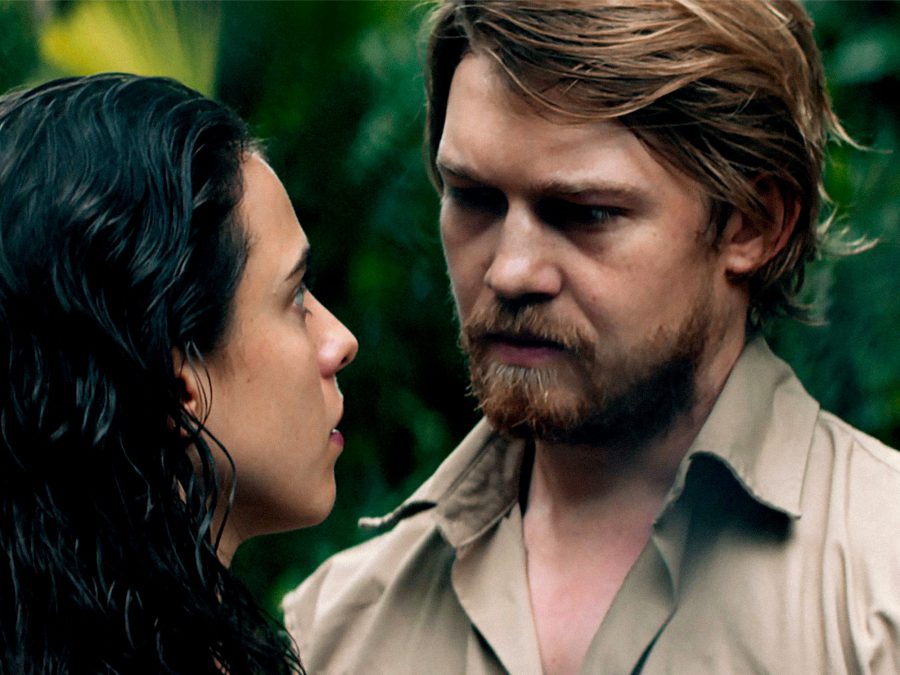
“Suck me,” Stars at Noon
Claire Denis is famed for her ability to find effortless sexiness in actors who electrify her films with a naturalistic erotic charge. And so it was like lifting a plate cloche to find a slab of spam where we expected filet mignon when, during a sex scene in Denis’ Stars At Noon, star Joe Alwyn turns to Margaret Qualley to deliver the immortal instruction of “suck me.” Joe Alwyn’s attempt to downplay the line in a growl only draws attention to the fact that “suck me” is a line that cannot be downplayed. Just as the sun shines a lining of silver from behind a cloud — and, by the way, Qualley’s got another bit of howler dialogue involving clouds — the command’s awkwardness is undeniable. As delivered by Alwyn, “suck me” is so powerfully unsexy that it makes one briefly wonder whether any Claire Denis dialogue has ever truly been sexy, or whether it has simply always been in French. Are there other “suck me”s scattered across her filmography? – Sophie Monks Kaufman
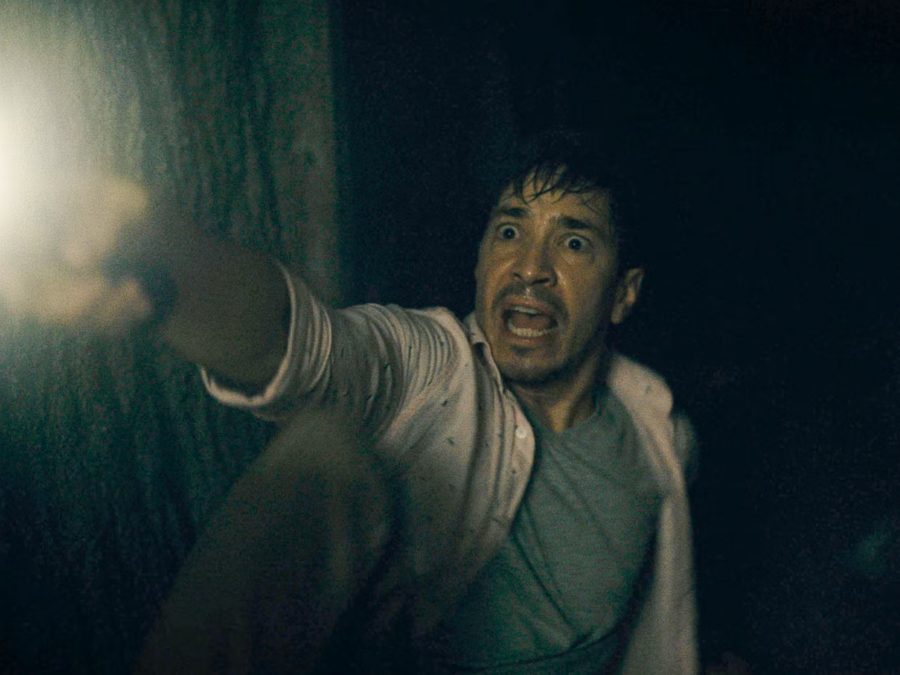
Dropping the F-slur, Barbarian
Barbarian reserves as much menace for the different shades of implicit and explicit rape culture as it does for the monster lurking under a Detroit rental home. With two ends of the spectrum occupied by the awkward yet well-meaning Bill Skarsgård and the monstrous Richard Brake, Justin Long stands smack in the middle. As a Hollywood director accused of rape by an actress, Long acknowledges his character’s vile actions with mundane shallowness, punctuating a reassuring phone call with his mother by answering his next call with a boisterous “What up, fagGOT!” As his lips curl into a smug smirk, his pitch drops at the last syllable to give the slur extra oomph. With one word, Long lets the mask drop. He may not be the worst monster in the film, but with that casual utterance, he reveals himself as something just as vital to the misogynistic spectrum: the piece that bridges the two ends into a cohesive whole. – Carol Grant
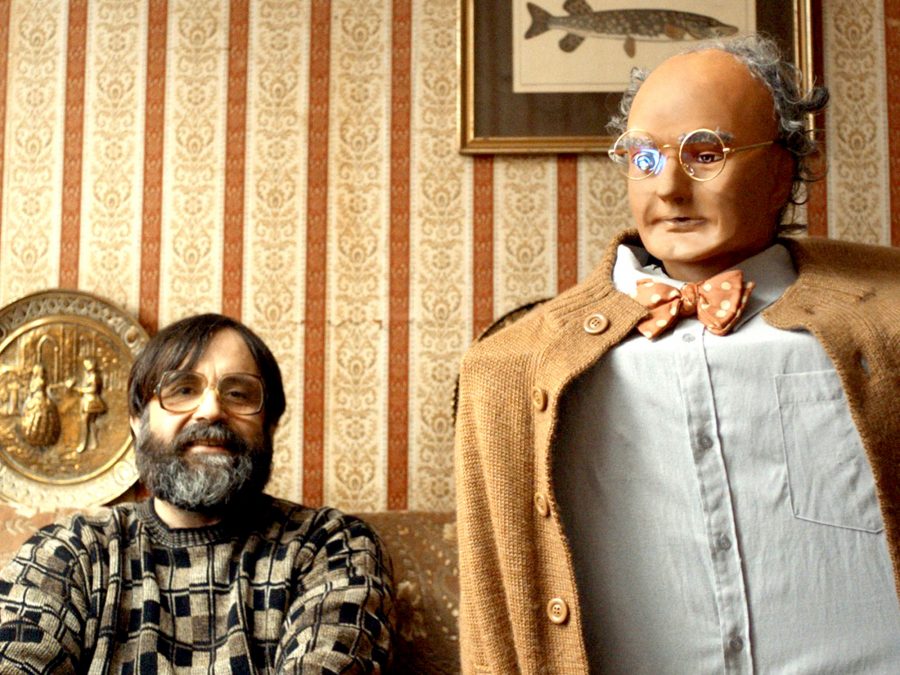
“Yummsville”, Brian and Charles
A voice with the android flatness of a computer software text-to-speech function echoes from within a seven-foot robot with a discarded mannequin’s head and a washing machine body. “Yummsville,” it says. Charles, the robot in question — played by a nearly-suffocated, half-blinded Chris Hayward — is referring to fresh cabbage, his favourite food. Of all the witty quips and one-liners that grace Jim Archer’s cult-classic-to-be Brian and Charles, this is the one that sticks. A single word, so deliciously silly, delivered through the monotonous (yet never dull) automated voice of a literally lifeless character can still feel as joyously alive as anyone can be. – Rafa Sales Ross
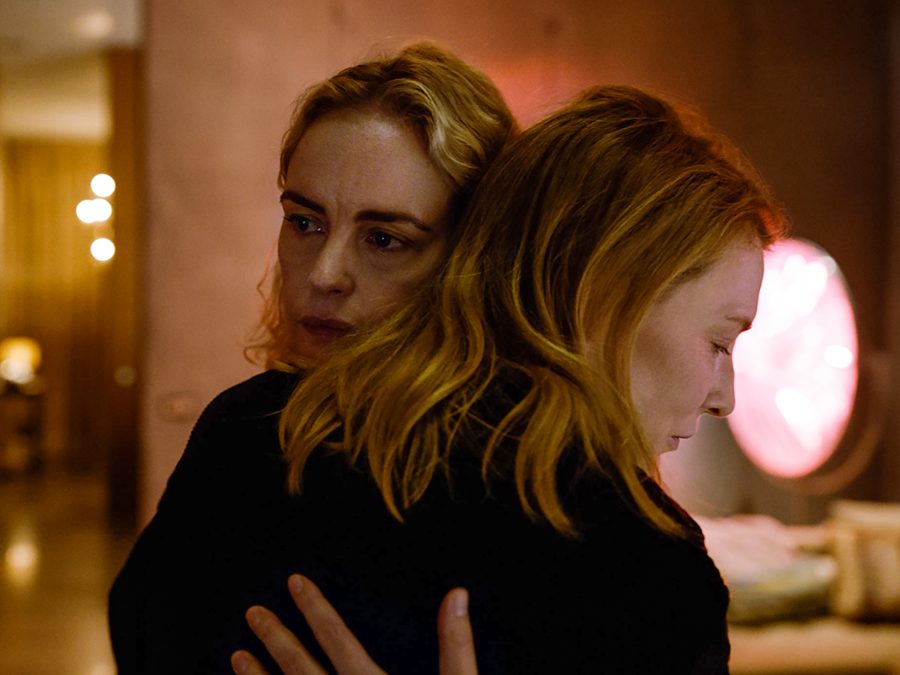
“Okay. Let’s shoo the elephant from the room: ‘What the hell happened to her face? Did she, uh, schedule a nose and eye job and bail before the surgeon finished the other half?’ No. I was, uh, I was attacked. Thank you.”, TÁR
Lydia Tár delivers this line to the members of her orchestra after arriving to work with a battered face; in reality, the injury resulted from chasing her young grooming victim into an abandoned apartment complex, getting scared by a dog, and slipping on some concrete in an attempt to flee. Blanchett’s delivery demonstrates several of the character’s dimensions, from her practiced friendly charm as she imitates the orchestra’s thoughts, to her grave announcement of the lie which she hopes will garner pity. By this point in the film, her more sinister manipulations have been made so obvious that this less-consequential lie comes off as comical, especially considering her refusal to offer more details on the event beyond the vague claim of having been “attacked.” Blanchett’s delivery is perfectly pathetic. She’s out of breath, as though she’s in a hurry to get past the phony story in fear no one will buy it. If you haven’t cottoned on to the fact that Tár is a comedy by this point in the film, this line should make it clear. – Esther Rosenfield
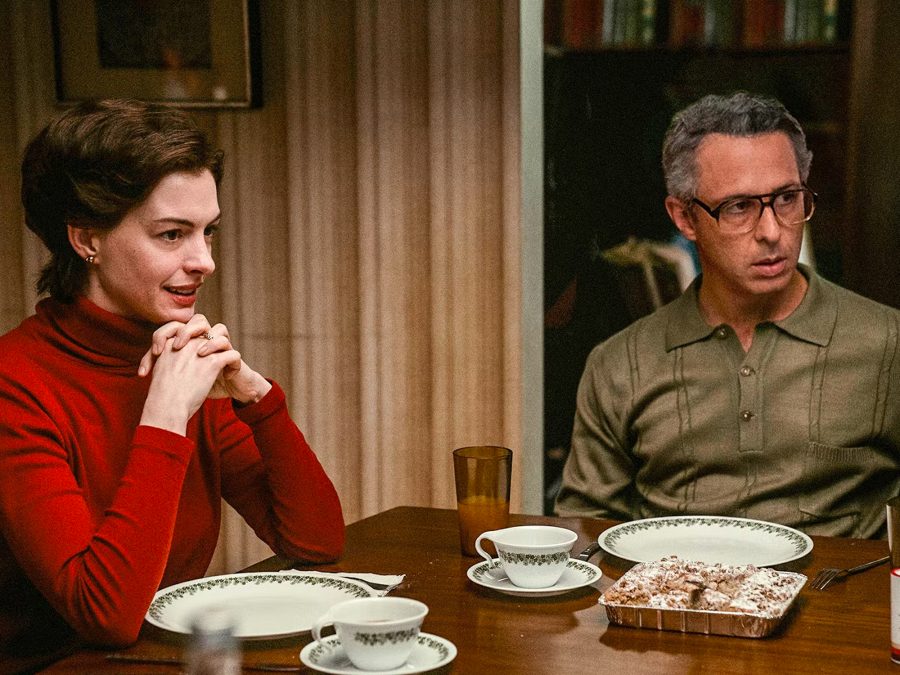
“Dumplings, suckers!”, Armageddon Time
Maybe it’s because James Gray’s stylised dialogue doesn’t work for everyone that he doesn’t really get enough credit for his sense of humour. In his hyper-personal Armageddon Time, a chaotic dinner scene sees impetuous 11-year-old Paul – expertly depicted by newcomer Banks Repeta – announce to his family that he doesn’t want to eat the spaghetti and fish that his mother has prepared for dinner (which: fair), instead choosing to order Chinese food with a casual air that implies this is a regular occurrence. The pièce de résistance comes when the defiant Paul exclaims “Dumplings, suckers!” over the yelling from the family gathered around the dining table as he calls the takeaway. It speaks to an almost impressive audacity that occasionally rears its head in pre-teens, in line with Paul’s soon-to-be-challenged notion that he’s untouchable. It’s also refreshing to see a filmmaker create a cine-memoir in which he’s quick to admit he was a little brat, rather than some doe-eyed moppet whose only concern was growing up to be a great cineaste. Me? I’m off to order Chinese. – Hannah Strong
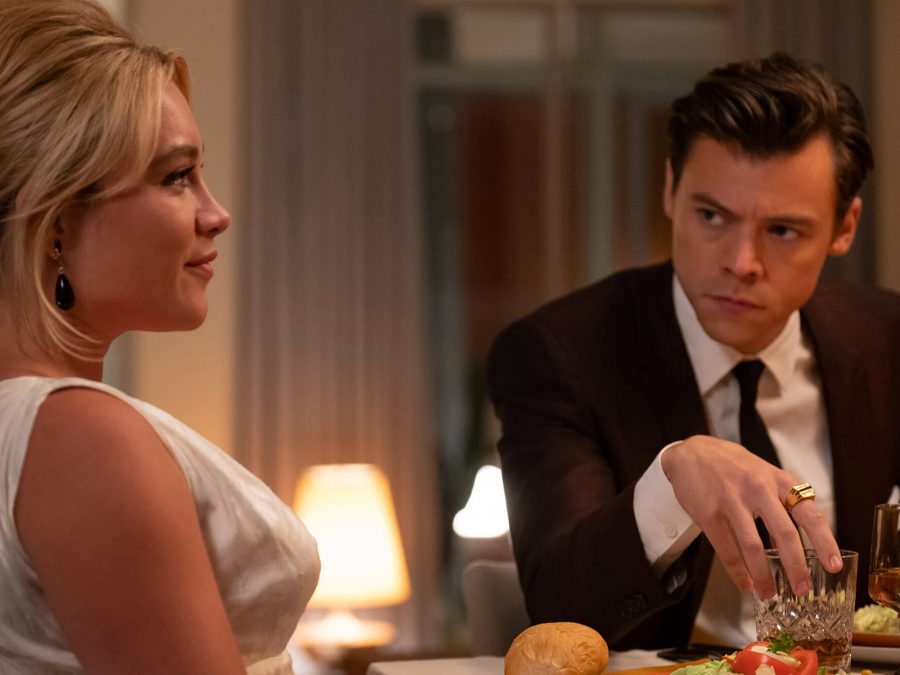
“I don’t think these mashed potatoes are gonna work”, Don’t Worry Darling
Don’t Worry Darling owes a lot to genre TV series like Black Mirror and The Twilight Zone, but a cooking calamity is straight from the sitcom playbook. Sporting his wife’s cutesy apron, trying to mash unboiled potatoes using a whiskey decanter, Harry Styles is giving I Love Lucy as seemingly dreamy husband Jack. Florence Pugh’s Alice is suitably disoriented, and her quizzical expression after surveying the kitchen mess matches my own as I wonder if this movie is about to lean into comedy. Yes, but only briefly: Jack leans in to confess, but instead, a punchline comes. Styles speaks in an accent with a whiff of his actual Cheshire inflection, dabbling in slight transatlantic tones that caused an avalanche of comments before the film even came out. “I don’t think these mashed potatoes are gonna work,” he murmurs. I add a laugh track in my head every time I think about this line — maybe Wilde should’ve done this too. – Emma Fraser
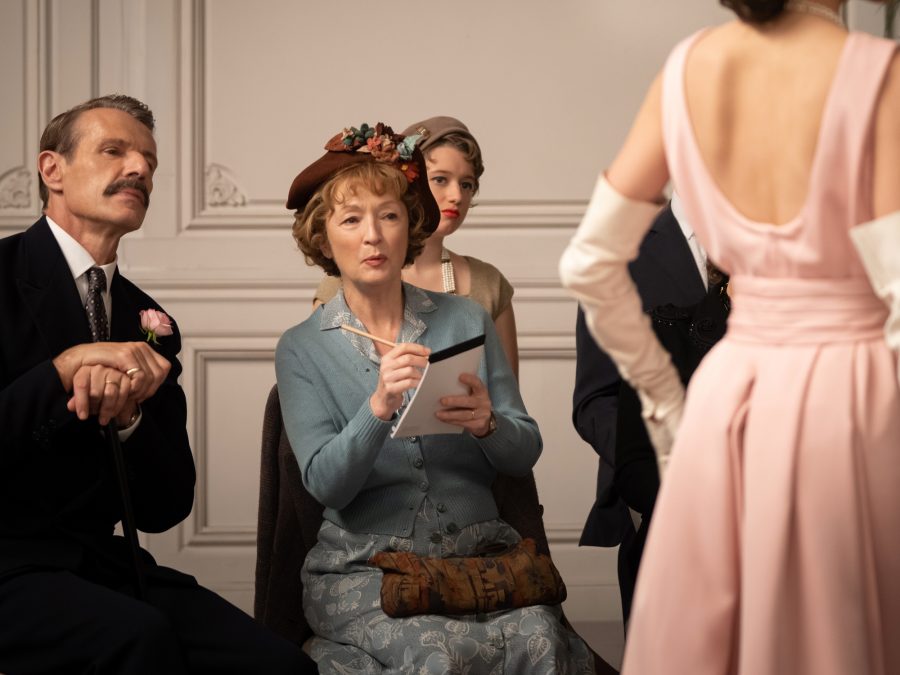
“Oh, give over. He might have come back any minute. I’d have looked a right Charlie!”, Mrs. Harris Goes to Paris
There aren’t many films for which I’m willing to leave my critic’s hat in the foyer, but for Mrs. Harris Goes to Paris, I did just that. Lesley Manville seemed to be imitating my nan, a woman with the warmest heart, but who will also pick a fight with anyone she thinks might be doing her wrong. For all her charming tussles with Isabelle Huppert, it was this retort when an officer tells her she’s been entitled to a war widow’s pension for several years that still stands out in my mind. Her outrage at the notion she might have remarried, along with the Cockney slang “Charlie,” feel so specifically British. I told dear Nan to see the film, and she phoned me up after: “What did you think of it, Nan?” “Well it was a bit far-fetched, wasn’t it? Fancy going all the way to Paris for a bleedin’ dress!” “Mrs. Harris reminded me a bit of you.” “Oh, you cheeky mare!” – Lillian Crawford
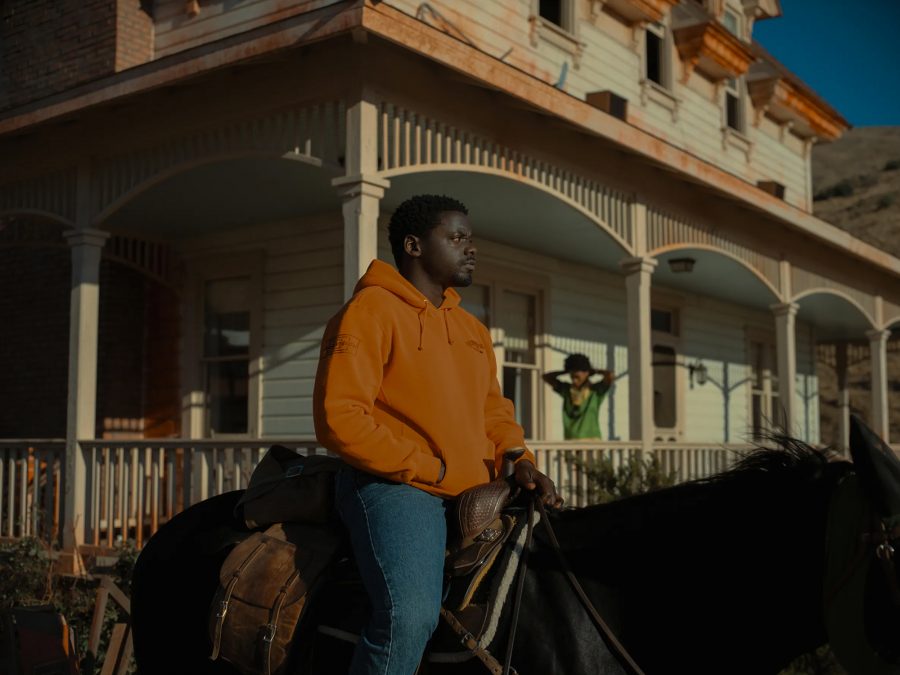
Call and response, Nope
With Nope, Jordan Peele assembled a coterie of hot young stars for an old school blockbuster, but because the man also has capital-T Taste, he also cast two of the most leathery-voiced lifers in Hollywood. Armed with a velvety baritone that makes him sound like he’s permanently accompanied by a cello, Keith David is a down-on-his-luck horse wrangler optimistic that if “we really put on a show, you know they are gonna bring us back from the sequel.” Whereas Michael Wincott, who sounds like he gargles glass each morning, is a renowned cinematographer lamenting that “the dream you’re chasing, where you end up at the top of the mountain, all eyes on you? It’s the dream you never wake up from.” The deep purrs from David and Wincott are at either end of the Hollywood Art Versus Commerce debate, but also proof that line delivery can rival aliens in terms of pure spectacle value. – Leila Latif
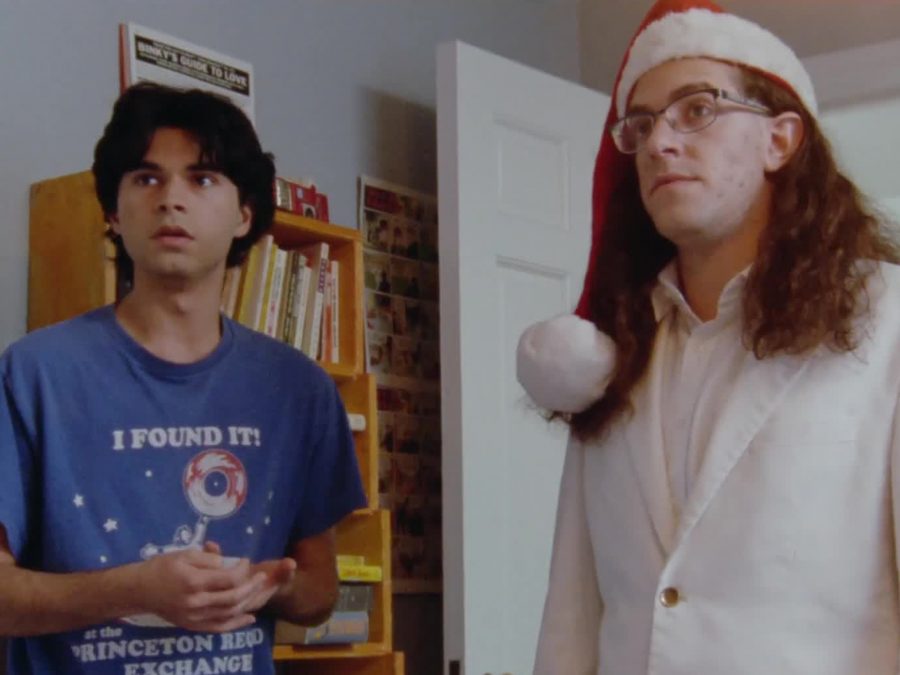
“NO ONE IN THIS ROOM IS AN ARTIST”, Funny Pages
Owen Kline’s first feature Funny Pages is a different kind of coming-of-age film, one in which our young hero gradually realizes that he’s chosen a path of permanent immaturity. Robert (Daniel Zolghadri) is an aspiring underground cartoonist whose precocious obscurantist interests bring him into contact with the kind of crate-diggers and outsiders who would be (niche, minor) legends if drawn by R. Crumb, but are hopelessly unfit for real life. The film climaxes with a Christmas-day drawing lesson—paid for by mom and dad—commissioned from Wallace (Matthew Maher), an emotionally volatile, probably neurodivergent, definitely precarious former inker, who finally cracks: “NO ONE IN THIS ROOM IS AN ARTIST!” The entire movie—the poignancy and horrible blurting hilarity of a marginal person; the moral naivete of the know-it-all-teenager who sets out to decorate his life with such figures; the startling chastening loneliness of a life in thrall to the culture of the past—is crystalized in Maher’s childish rage and tragicomic lisp. As a semi-professional film critic, I could hardly relate personally, of course, but I felt something nonetheless. – Mark Asch
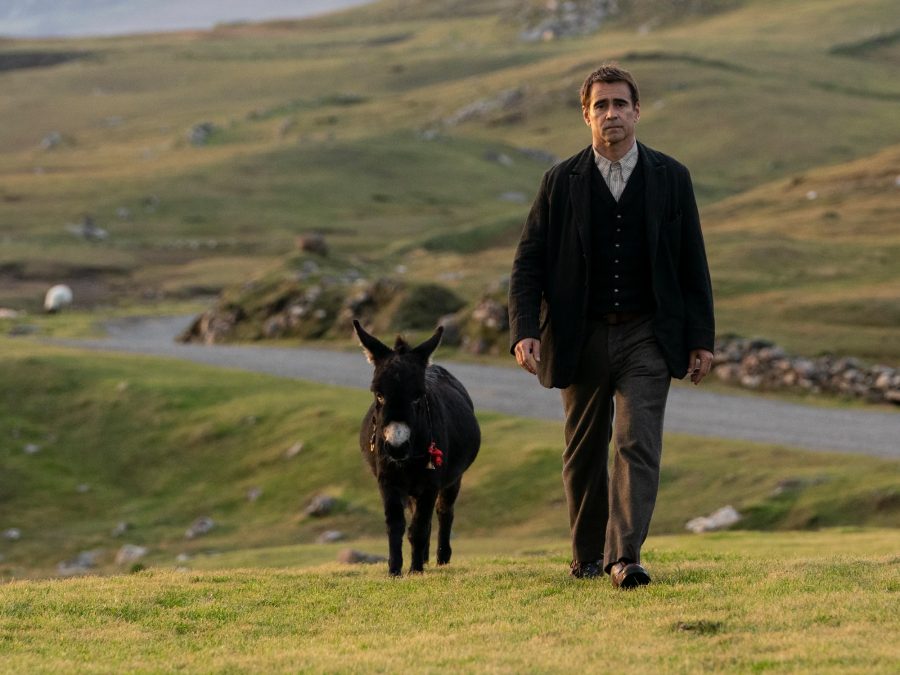
“I will not leave my donkey outside when I’m sad”, The Banshees of Inisherin
Much of the pleasure and power of The Banshees Of Inisherin comes from the reframing of righteousness; teeny-tiny grievances are given an enormous stage in a way that only makes sense once you’ve spent a minute with them. One of these is Pádraic Súilleabhán’s (Colin Farrell) steadfast determination to keep his animals close to him at all times, the most meaningful company in a lonely life his sister Siobhán (Kerry Condon) doesn’t quite understand. So when Farrell finally huffs and puffs as Siobhán suggests for the billionth time that Jenny the donkey should maybe hang out outside, like normal donkeys do, the determination in his voice is breathtaking. “I will not leave my donkey outside when I’m sad,” he says, putting a full stop on this logical, fair and well-merited situation. It has the wishfulness of a child but the force of a man who could make you chop off all your fingers. Just let them live, for God’s sake. – Ella Kemp
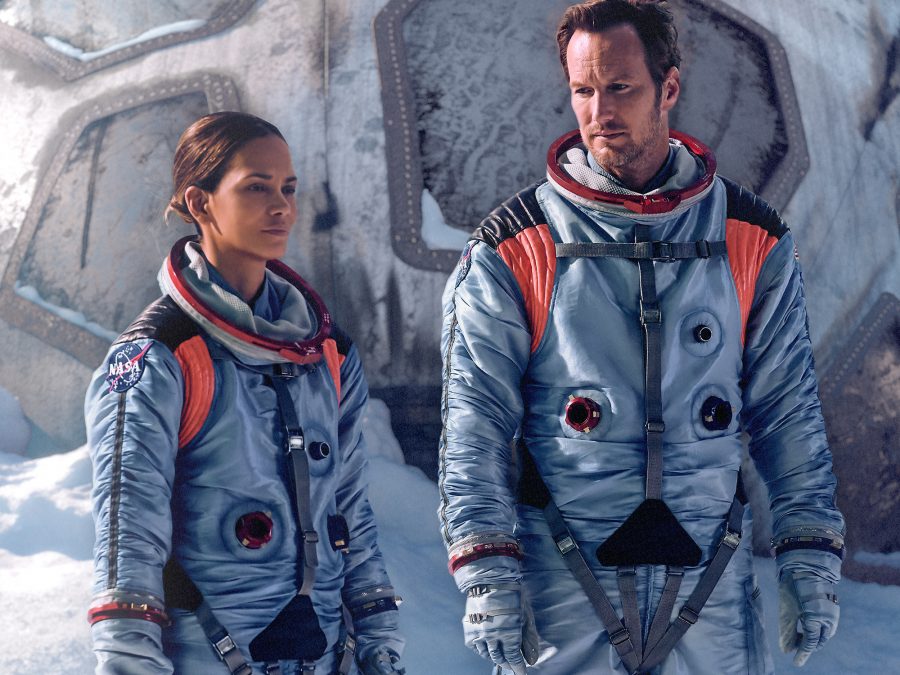
“Save the moon, save Earth”, Moonfall
“THE MOON IS NOT WHAT WE THINK,” declares the tagline for Roland Emmerich’s wackadoo Hollow Earth Theory propaganda picture and box-office megabomb. The film itself strives to strike that same chord of absurd self-seriousness to varying levels of success, coming closest when our man Patrick Wilson gets his “Today we celebrate our Independence Day!” moment. He’s a good actor who’s done a lot of good work, but he doesn’t let that stop him from giving all of himself to a deeply — knowingly? maybe! — terrible film. He intones the mission brief of “Save the moon, save Earth” with the same conviction he brought to Joe Pitt in Angels in America, plowing right through the beautiful silliness of the concept of saving the moon. For that matter, isn’t saving Earth kind of a ridiculous notion too? Has anyone ever actually saved the entire planet from anything? This, I suspect, is the magic of the movies. – Charles Bramesco
The post LWLies’ favourite line readings of 2022 appeared first on Little White Lies.
![Forest Essentials [CPV] WW](https://s3-us-west-2.amazonaws.com/pcw-uploads/logos/forest-essentials-promo-codes-coupons.png)
0 comments